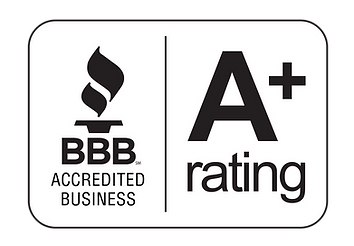Structured Settlement Protection Acts
Structured Settlement
Consumer Protection
In All 50 States and the District of Columbia
What Are Structured Settlement Protection Acts?
Every state in the United States of America, along with the District of Columbia, has a structured settlement consumer protection act (SSPA). The laws are commonly known as Structured Settlement Protection Acts (SSPAs). Structured settlement payment rights can be transferred. These states have certain protections in place for those selling structured settlement payment rights to a third party buyer of structured settlement payment rights.
Structured Settlement Transfer Laws generally require :
Full disclosure from structured settlement buyers: Structured settlement buyers must provide a disclosure that includes all of the terms of the transaction in a very clear and concise manner for the protection of the seller.
A “cooling off period:” The selling annuitant must be allowed a period of time during which he or she can back out of the deal to sell structured settlement payments
Court approval/"Best interest" : all sales or transfers of annuities or structured settlement payments must have the approval of a judge. This approval will depend largely upon the seller’s unique financial situation and whether or not it is determined that such a sale is in the seller’s best interests and the interest of any applicable dependents.
Prohibition on transfer of workers compensation structured settlement payments
State Statute
Alaska 2003 Alaska Laws Ch. 21, enacting AS §§ 09.68.200-09.68.230
Arizona Ariz. Rev. Stat. Ann. §§ 12-2901 – 12-2904
Arkansas 2005 House Bill 2614, enacting Ark. Code §§ 2381-701-23-81- 707
California Cal. Ins. Code §§ 10134-10139.5
Colorado Colo. Rev. Stat. §§ 13-23-101 – 13-23-108
Connecticut Conn. Gen. Stat. § 52-225g – 52-225l
Delaware Del. Code Ann. Tit. 10, §§ 6601-6604
Florida Fla. Stat. Ann. § 626.99296
Georgia Ga. Code Ann. §§ 51-12-70-72, §§51-12-70-76-77
Idaho Idaho Code § 28-9-109
Illinois 215 Ill. Comp. Stat. §§ 153/1 – 153/35
Indiana Ind. Code Ann. §§ 34-50-2-1 – 34-50-2-11
Iowa Code Ann. §§ 682.1 – 682.7
Kansas 2005 House Bill No. 2160
Kentucky Ky. Rev. Stat. Ann. §§ 454.430 – 454.435
Louisiana La. Rev. Stat. Ann. § 9:2715
Maine Me. Rev. Stat. Ann. tit. 24A §§ 601.25, 2241-46
Maryland Md. Code Ann. Cts. & Jud. Proc. §§ 5-1101-5-1105
Massachusetts Mass. Gen. Laws Ann. Ch. 231C, § 1-5
Michigan Mich. Comp. Laws. Ann., §§ 691.1191 – 691.1197
Minnesota Minn. Stat. §§ 549.30 – 549.34 (2022 Update effective August 1, 2022)
Mississippi Miss. Code Ann. §§ 11-57-1 – 11-57-15
Missouri Mo. Rev. Stat. §§ 407.1060 – 407.1068
Montana 2005 Senate Bill No. 122
Nebraska Neb. Rev. Stat. §§ 25-3101 – 25-3107
Nevada N.R.S. § 42.030
New Hampshire Chapter 408-G STRUCTURED SETTLEMENT PROTECTION
New Jersey N.J. Stat. Ann. §§ 2A: 16-63 – 16-69
New Mexico 2005 House Bill 495
New York N.Y. Gen. Oblig. Law §§ 5-1701-1709
North Carolina N.C. Gen. Stat. Art. 44B §§ 1-543.10 – 1-543.15 and Art. 33 § 1-394.1
Ohio Ohio Rev. Code. Ann. §§ 2323.58 – 2323.587
Oklahoma Okla. Stat. Ann. tit. 12 §§ 3238 – 3245
Oregon 2005 Senate Bill 645
Pennsylvania 40 Pa. Cons. Stat. Ann. §§ 4001-4009
Rhode Island R.I. Gen. Laws Ann. §§ 27-9.3-1 – 27-9.3-7
South Carolina S.C. Code Ann. §§ 15-50-10 – 15-50-70
South Dakota S.D. Codified Laws §§ 21-3B-1 – 21-3B-12
Tennessee Tenn. Code Ann. Tit. 47, Ch. 18 §§ 1-7
Texas Tex. Rev. Civ. Stat. Ann. §§ 141.001 – 141.007
Utah Utah Code Ann. §§ 78-59-101-108
Virginia Va. Code Ann. §§ 59.1-475–477
Washington State Wash. Rev. Code Ann. §§ 19.205.010 – 19.205.060, § 19.205.900
Washington (DC) D.C. Law 22-235. Structured Settlements and Automatic Renewal Protections Act of 2018
Wisconsin Chapter 895 subchapter III Structured Settlement Transfers
W. Virginia W. Va. Code §§ 46A-6H-1 – 46A-6H-8
Unregulated Sales Practices/Lack of Licensure | Gaps in Structured Settlement Factoring Regulation
Despite structured settlement protection acts in all 50 states and the District of Columbia, certain structured settlement factoring companies have found ways to exploit the laws, in ways possibly not contemplated by state legislatures, due to unregulated sales practices of structured settlement factoring companies and their public facing sales representatives. There is a clear lack of symmetry when one compares the regulation of solicitors in insurance (including but not limited to structured settlement annuities), real estate, banking and securities with structured settlement factoring. National publicity of such exploitation has led to changes in laws of certain states that have improved their efficacy. But there is plenty of more work to be done. 4structures.com, LLC President John Darer continues to be at the forefront of efforts to improve the laws and through his ongoing pro bono efforts exposing questionable business practices as the
Structured Settlement Watchdog®.
Read John Darer's September 2015 white paper on Secondary Market Constructive Solutions
State Legislatures Act When They Get Negative Press
Minnesota
In May 2022, the Minnesota Legislature approved important amendments in response to a blistering expose published by the Minneapolis Star Tribune. Among them, is a new provision that gives the court the discretion in any case, "to appoint an attorney to make an independent assessment and advise the court whether the financial terms of the proposed transfer agreement are fair and reasonable, and whether the transfer is in the best interests of the payee and the payee's dependents. The evaluator must present the findings of the evaluation to the court at or prior to a hearing on the application. All costs and reasonable fees for the evaluator shall be borne by the transferee". The updates to the Minnesota Structured Settlement Protection Act were signed into law and became effective August 1, 2022.
South Carolina
Then in the Fall of 2022, South Carolina legislators recognized that South Carolina's Structured Settlement Protection Act needed significant improvement after troubling findings appeared in a multi-part expose in Myrtle Beach Sun News, a McClatchy publication, and other regional and national press. On May 16, 2023, South Carolina Governor Henry McMaster signed a comprehensive structured settlement protection reform bill that protects severely injured accident victims and their families who receive long-term structured settlement payments arising from settlements of lawsuits for traumatic brain injuries, and other injuries. The bill provides additional definitions, a list of acts in which a structured settlement purchase company cannot engage, and factors which the court must consider in determining if the transfer of the structured settlement payment rights is in the best interest of the payee. SC S0259 | 2023-2024 | 125th General Assembly | LegiScan
South Carolina is on the right track. South Carolina's Structured Settlement Protection Act is now one of the toothiest in the USA. The 2024 Badger settlement not only hits the structured settlement factoring entities led by Ryan Blank, it also hits the secondary market assignee (and, by entension its investors). bloodies the noses of the lawyers and law firms for the factoring company, guardians ad litem and the lawyer or advisor providing substandard independent professional advice. See STATE OF SOUTH CAROLINA - CASE#2023CP0300062 IN THE COURT OF COMMON PLEAS THIRD JUDICIAL CIRCUIT COUNTY OF ALLENDALE captioned TEJWANNA HAY, as guardian and on behalf of STB, FB, and SDB (minors), Plaintiff, v. Taylor A. Peace, Harrell, Martin & Peace, P.A., Defendants. Also see SC Murdaugh victim who lost millions to firms get money back | Myrtle Beach Sun News (myrtlebeachonline.com)
While 50 states and DC have structured settlement protection acts only 6 states require registration of structured settlement transferees Maine, Maryland, Louisiana, Georgia, South Carolina and West Virginia.
Investors who buy structured settlement receivables ( assigned another person's rights to structured settlement payments) have zero chance of insolvency protection in 40 states.
There is no safety net for Investors in structured settlement receivables in the event of insolvency of the life insurance company that issues the underlying annuity. In those 40 states, it doesn't matter when the investor acquired the structured settlement receivables. They are screwed in the event of insolvency. Investors may think they are buying an annuity but they are not buying an annuity. They are buying structured settlement receivables The annuity purchased when the original structured settlement was established, remains owned by the qualified assignment company.
Last updated February 8, 2025
#SSPA





